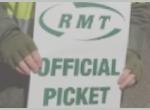1) The principal safety legislation in the land, the Health and Safety at Work Act 1974 (Section 7) states:
The employee has a duty in:
“taking reasonable care for your own health & safety and that of others who may be affected by what you do or don’t do”
2) Under the Employment Rights Act 1996, as amended, employees have the right not to be dismissed, selected for redundancy or subjected to any detriment on the following grounds:
• The employee left, or proposed to leave, or (while the danger persisted) refused to return to his or her place of work, or any dangerous part of it, in circumstances of danger he or she reasonably believed to be serious or imminent, and which the employee could not reasonably have expected to avert. • The employee took, or proposed to take “appropriate steps” to protect himself or herself or other persons in circumstances of danger which he or she reasonably believed to be serious and imminent.
This is explained in “Harvey on Industrial Relations and Employment Law” that:
“... (in) the case of the employee who believes himself to be in serious and imminent danger and who on that account quits work. The employee’s belief must be both genuine and reasonable. If he cannot reasonably avert the danger, then he is entitled betake himself out of harms way. The employer must not victimise him for leaving the area of danger, or proposing to leave it, or for refusing to return while the danger lasted”.
Case law has established that an employee’s reasonable concerns may also cover serious and imminent danger affecting members of the public.
3) Further, in a recent case, union members working for LUL who refused to work during the fire-fighters dispute (2002/2003) and who were not paid, had a hearing listed for their application that any deduction of pay was unlawful.
There were two arguments: 1) Based on law cited above, enabling anyone to absent themselves from the workplace when there is a serious and imminent danger and a significant risk, and this does not amount to secondary industrial action. 2) Based on a breach of contract relating to the implied term that the employer will provide for the Health and Safety of staff (see e.g. Johnson v Bloomsbury Health Authority).
LUL settled out of court and agreed to pay the applicants all the money they had deducted.
- 2706 reads






